HORIZON LINE 2012
It is a recorded sound performance/installation taking place at the sunset on a beach or another empty landscape.
It is an attempt to think of the horizon line as a utopian space. To think about the dimensions that consciousness cannot reach, be it in the present moment or in the future,; which relates the piece to the sublime. Uniting opposite ends of the scale, - the infinite and the small -, the sublime becomes then a bridge between the infinite and the human body. It relates to what could be called the social sublime: the gap between power and the subject, instituted through the complicity between the economic system and global politics, that condemns the individual to an atomized scale and, therefore, to a monadic condition.
When the audience arrive receives one mp3 player and headphones. They will start to listen to the recorded performance seated and looking to the horizon line. They are also informed that they can walk around if they want.
The performance starts 30 minutes before the sunset.
Sound recorded duration: around 60 minutes
Concept and Artistic Direction_Ana Borralho & João Galante
Original Texts_Paulo Castro, Ana Borralho & João Galante
Recorded Voices (PT+EN)_Claúdia Gaiolas, Gonçalo Waddington, Mónica Samões, Tiago Rodrigues
Sound Design_Borralho & Galante
Piano_Ana Borralho
Electric Guitars_Japp and Coolgate
Sound Edition_João Galante
Artistic Collaboration_Fernando L. Ribeiro
Texts Translation_Vera Rocha
Production Direction_Mónica Samões
Production_casaBranca
Co-Production_alkantara, Départs with the support of Programa Cultura da União Europeia
Thanks_Vasco Pimentel, Bar das Avencas, Jorge Bragada
About Horizon Line by Rita Natálio:
EUROPE: THE OLD VS THE NEW. THE TRAP OF EUROPE ’S CULTURAL MOSAIC
15.08.2012 Cultural diversity as identity generator is one of the most famous Europe’s patterns. We use the word “famous” explicitly, because considering that we’re all living after Andy Warhol - the man who discovered “fame” and “univoque variety of products” - diversity is less a parameter of culture than a parameter of market and mediatic recognition. So what does it mean to say, that Europe stands for cultural diversity?
We all know that part of the facts are in the cultural construction of the European Union. Europeans have created a continental narrative by cultivating difference within its political “Union”, by elevating its social-political-artistic-linguistic variety to an institutional degree, by strengthening its character with prolix speeches on cultural singularity and autonomy, by establishing gigantic institutions and network operations that value cultural exchange as a parameter to human developement. But is there a real-effective cultural mosaic in Europe or is the E.U. concerned in promoting panoramatic views of culture and reducing more and more the margins of its political experiment? Or else, what is the real political representation of culture in Europe?
CHAPTER 1. EUROPE: The Horizon Line
Last show by Ana Borralho and João Galante - “Horizon Line” - takes the natural scenography of a beach located in the Portuguese coast, to make us consider the world from the perspective of looking at the other side of the sea. After being provided a set of headphones and MP3 players, blankets and pillows, we sit in front of the Atlantic Ocean and imagine a transantlantic voyage to a poetic Other Side (of us). A trip to America, to The Unknow, to The Unconscient, to The Future , to The Past, to The Indian, to The Barbarian or to The Oblivion (in us). While the sun vanishes in the horizon line, a pre-recorded text in our head dramatically explicits critical concerns about the state of the world. The off-voice of different men and women from the other side are destined to insults us, to scream at us and to accuse us of generating a culture of consommation and depredation that uses and abuses reality and nature.
Off course, that when we say “us”, we have to consider the “us = europeans”, the “us = colonialists”, the “us = extreme-capitalists” because if Europe is a respectful diverse cultural mosaic it is also a clean surface, and it reflects our face as a mirror, as Narcisus looks at himself in the reflection of the river.
But we do not say “us-europeans” only to isolate our character and our guilts. We say “us europeans” because of the second most famous characteristics of Europe’s pattern : its mixed and blurred origins with the conceptual “factory” of all Western thinking and Modernity. And the big advantage – or disavantage - of being “Western-afiliated”, is that outside the concept of “Western culture” there is no “outside”. Or, maybe, there is a specific kind of Outside: the one that separates “western culture” from ALL THE OTHERS, meaning ALL THE OTHERS that are not specialized enough , not particular enough, not singular enough to be discovered. Or even the “others” that are too much specialized, too much specific, and therefore not really relevant to bigger contexts. I mean, besides this generalized concept of “western culture“, thare is no B-side. Europe’s pattern is “Western” because it is binded to “Western Modernity’s” project:
1. to universalize knowledge and practices to an extend, that outside this paradygm nothing and no-one has the possibility or crediblity to achieve universalim.
2. to define the condition of “being western“ as “special”, because no other culture will achieved its universal dimension and pretension.
So, let’s say that when a spectator looks at the “Horizon line“ in Borralho and Galante’s piece, he is forced to imagine what is left “behind” him: Europe (both geographically and historically); he has to consider the brutal separation line between “western” and “all the others” : he has to take part of Narcisus’s sick love with its reflection. He is literally pulled into the hypnotic beginning of Lars Von Trier’s film “EUROPA.” :
We will know listen to my voice.
My voice will help you and guide you still deeper into Europa:
http://www.youtube.com/watch?v=vrTI-SQmj4k
Europe is all there is to Europe. A mythology of light and totality left behind and still, the horizon line in front of us. But what can we imagine when we look at the Atlantic? Would capitalism – the supreme accusation of the off-voice in our headphones while looking at the ocean –be the our third most famous european pattern? Our shadow myth, the other side (us)? And what can we do with this idea?
If lights are out, and we cannot see much more than the same (the same pattenrs, the same questions about culture), is there a possibilty that we forgot to change our place as spectators? From where can we look at Europe?
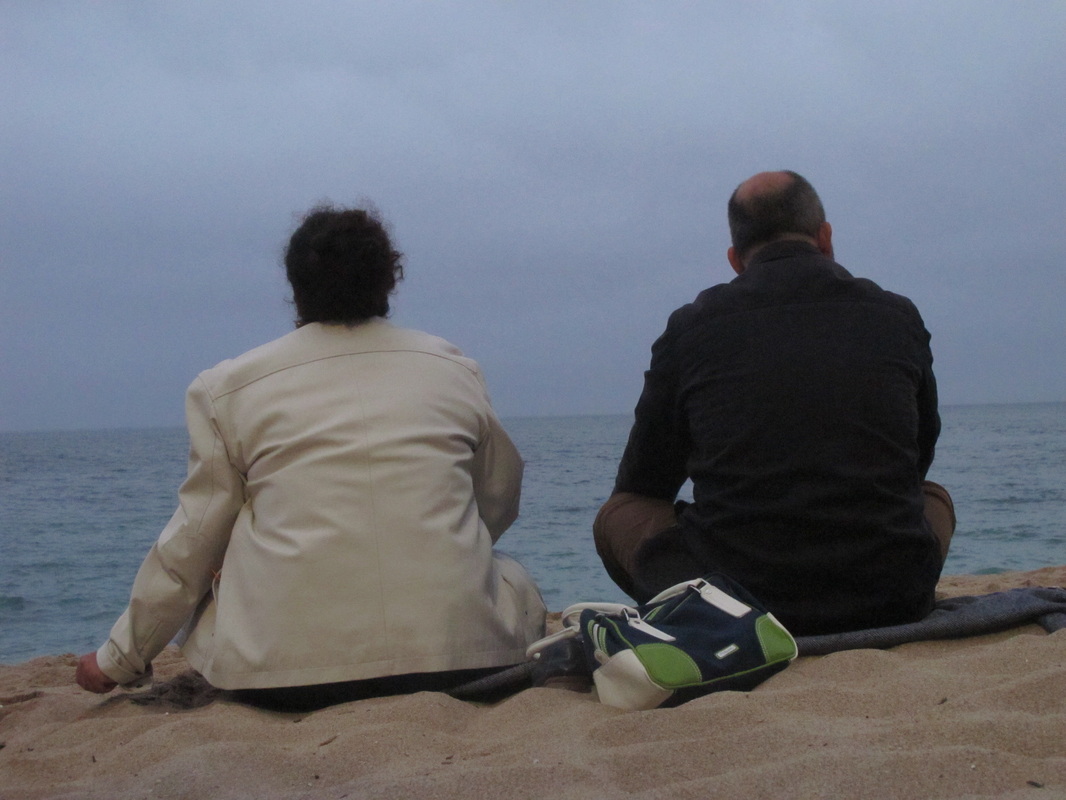
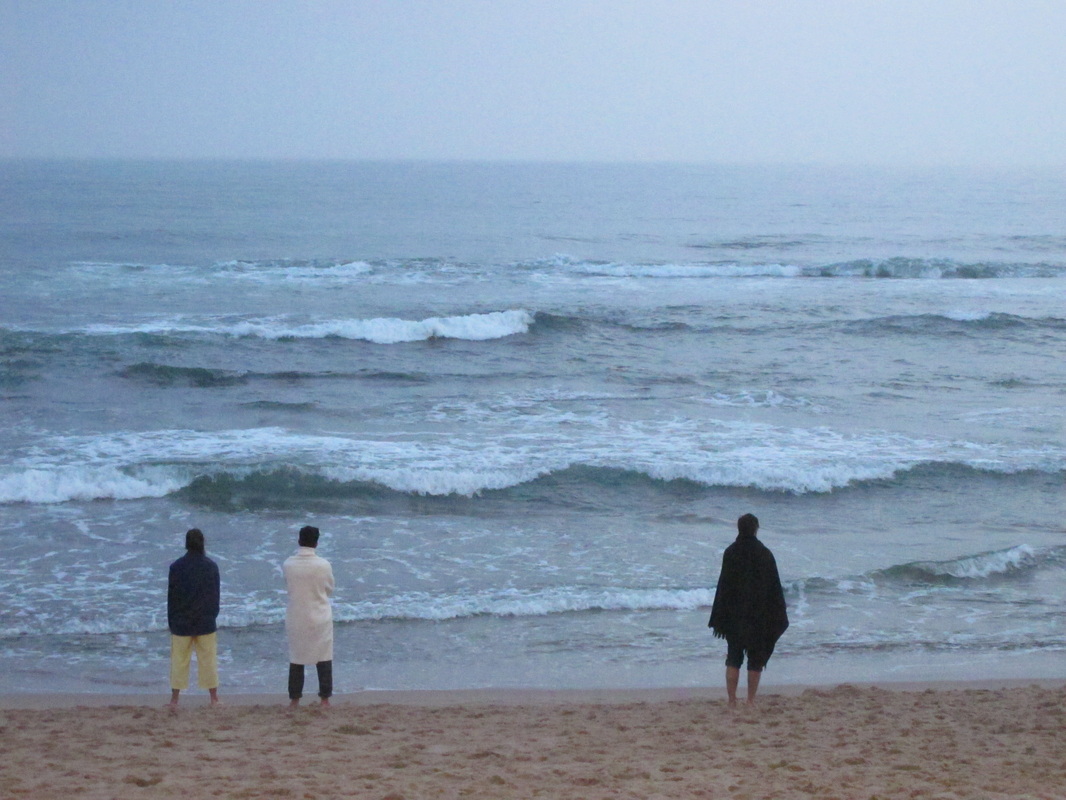
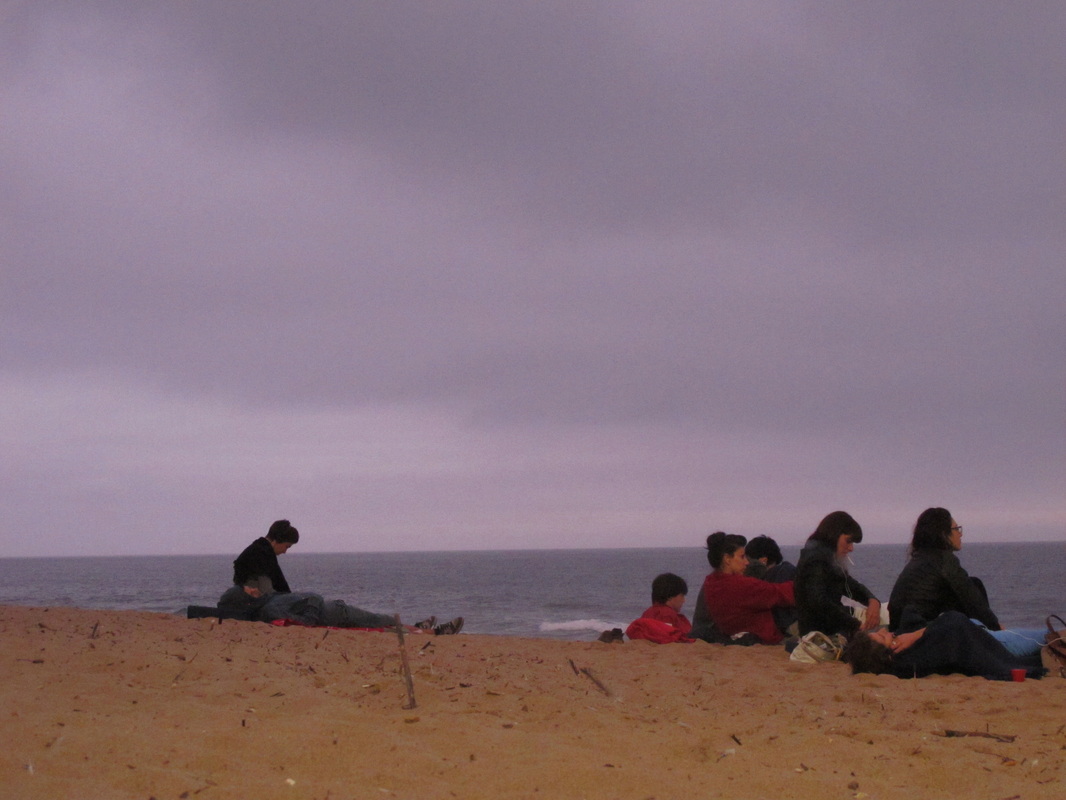
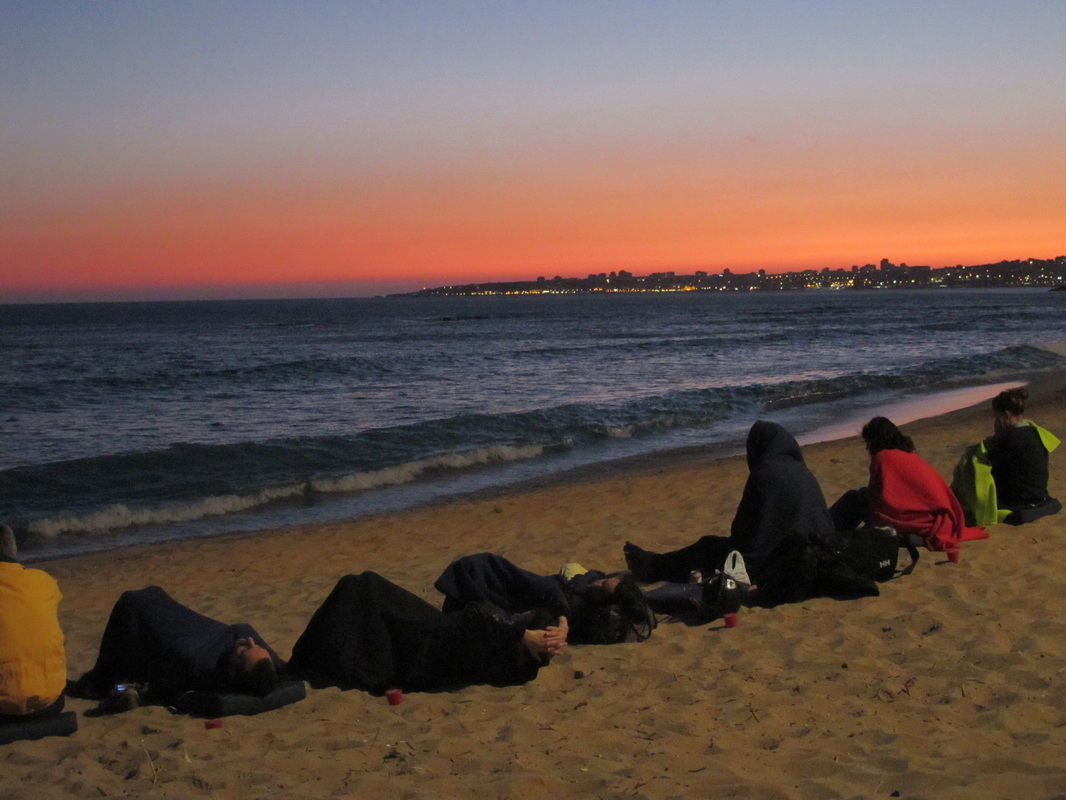
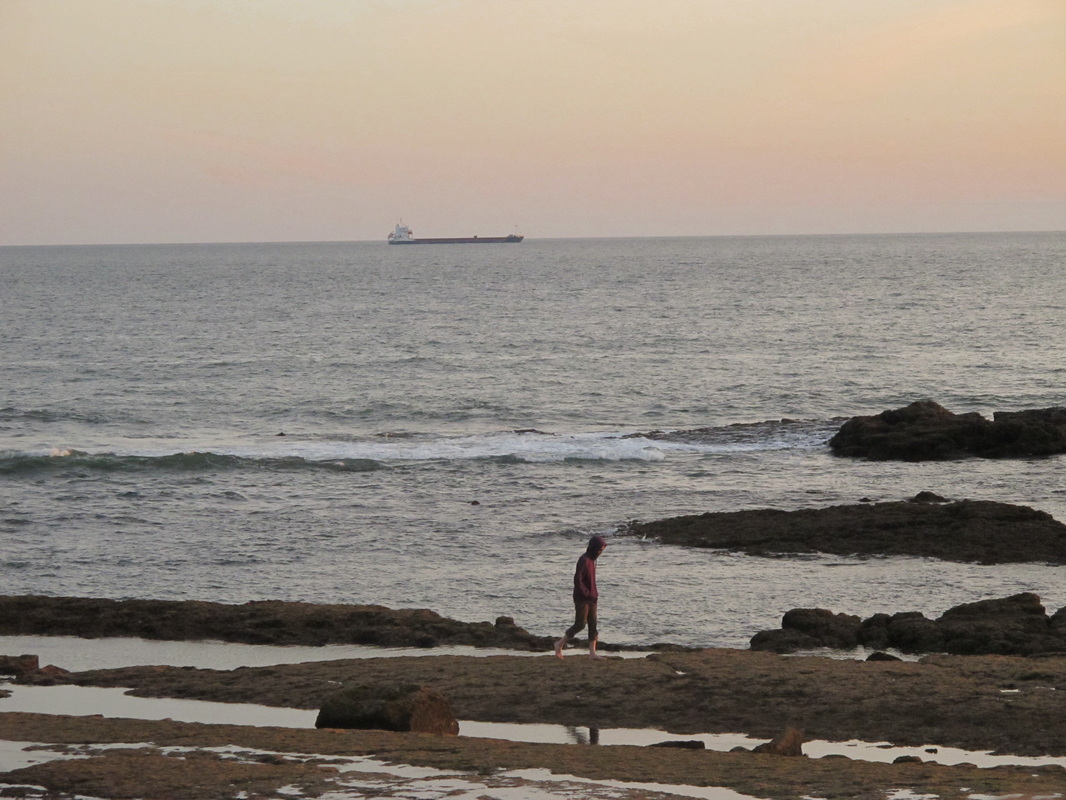
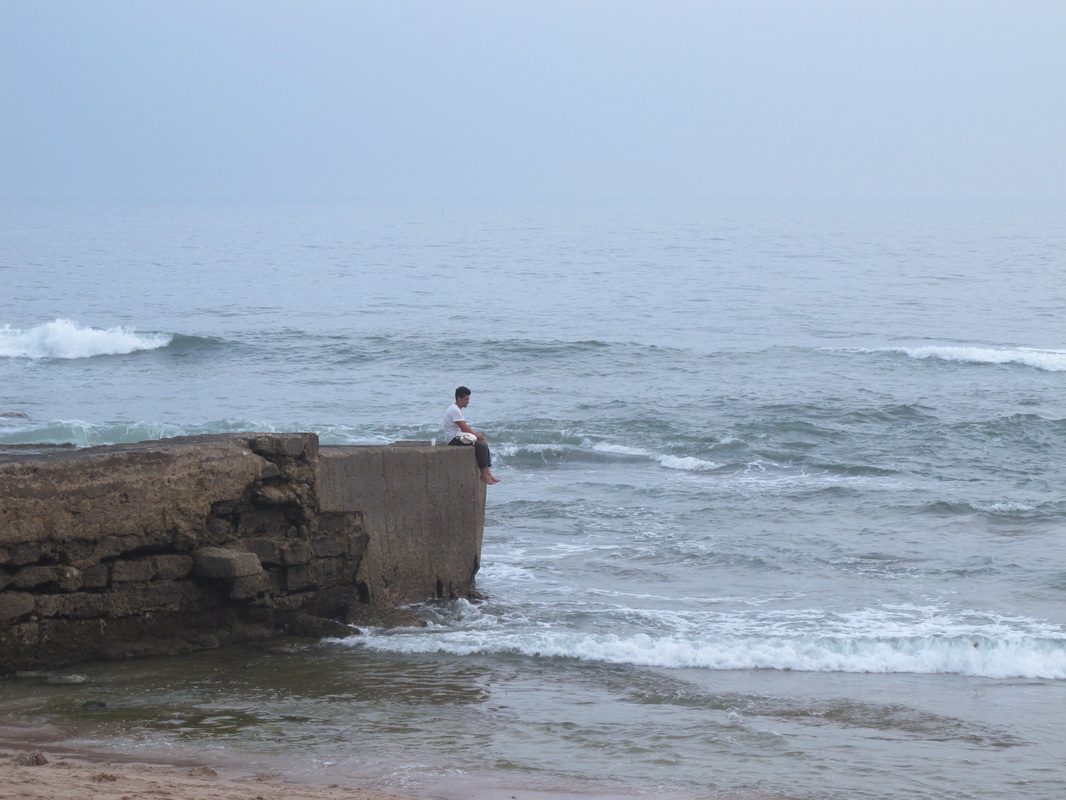
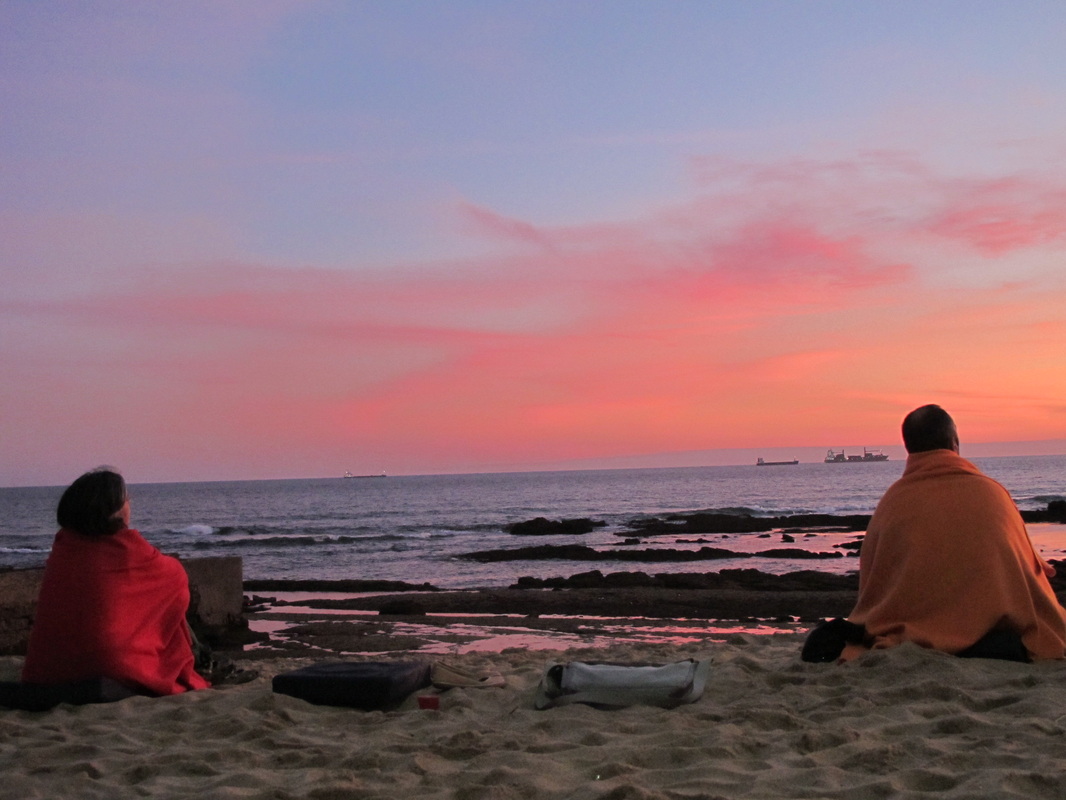
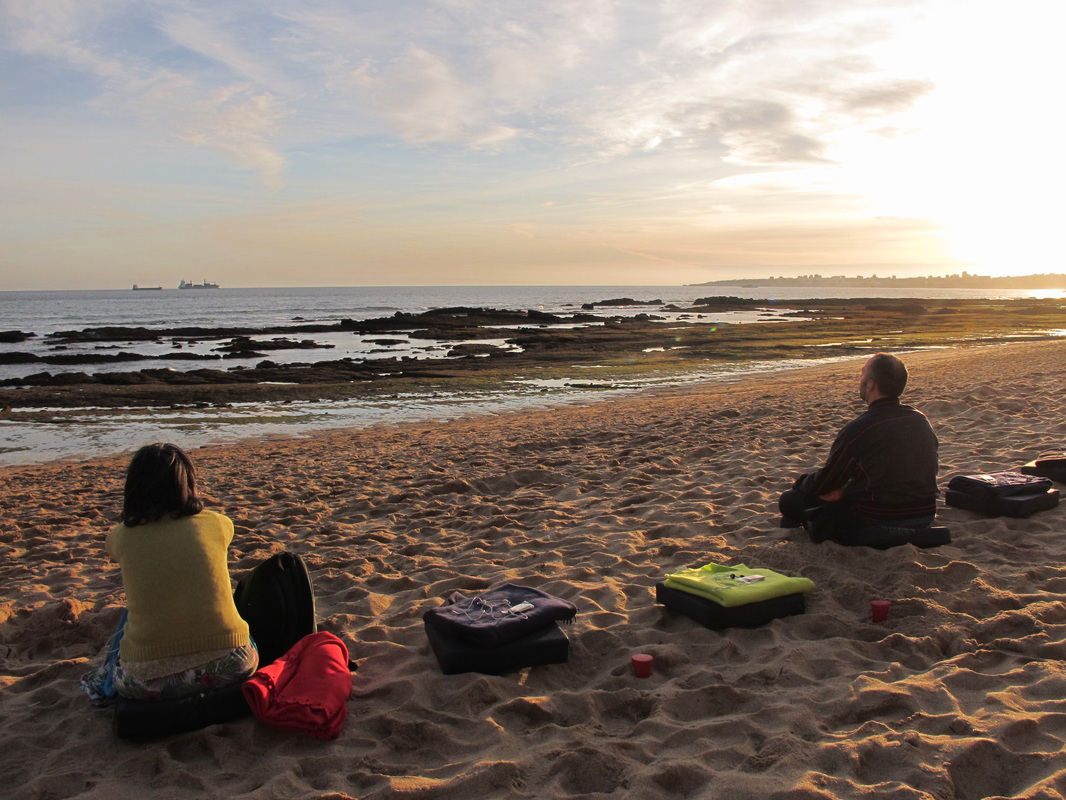
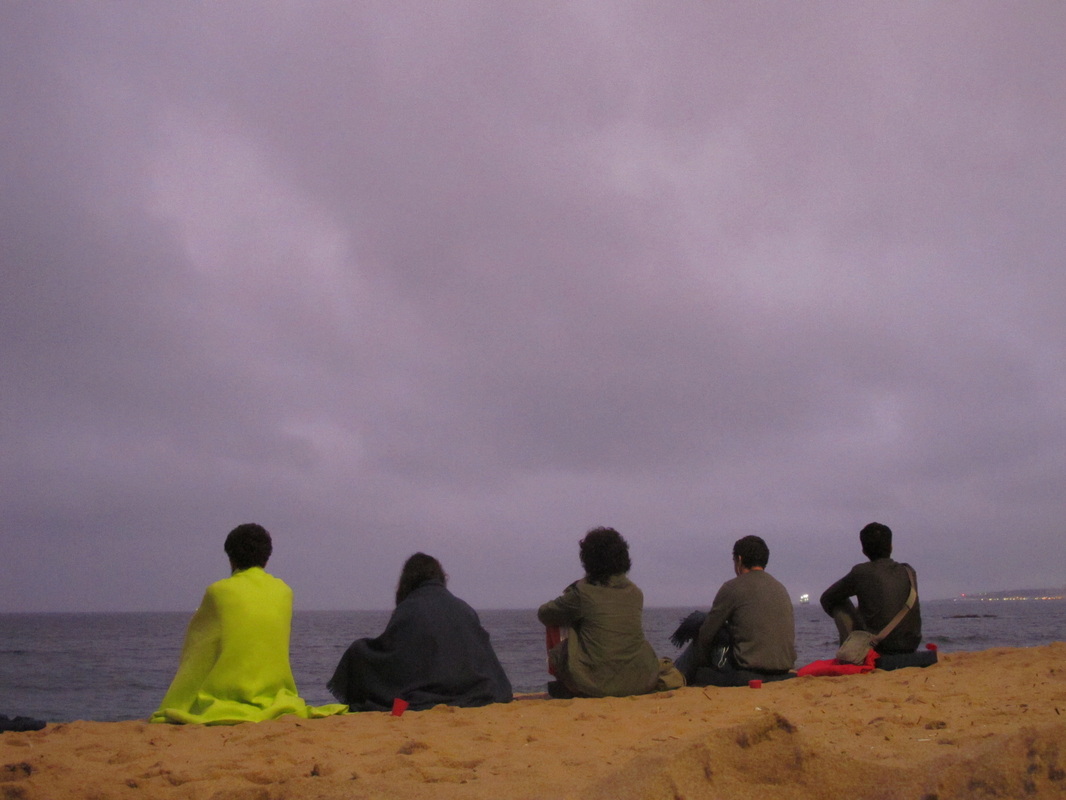
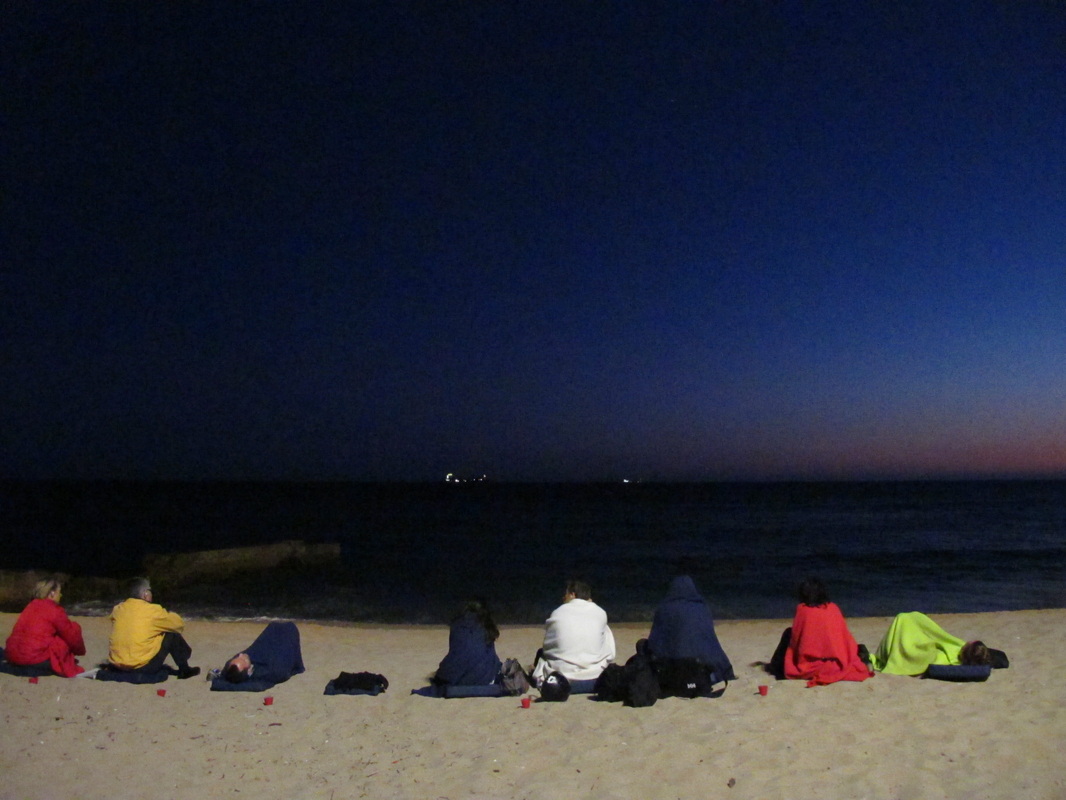
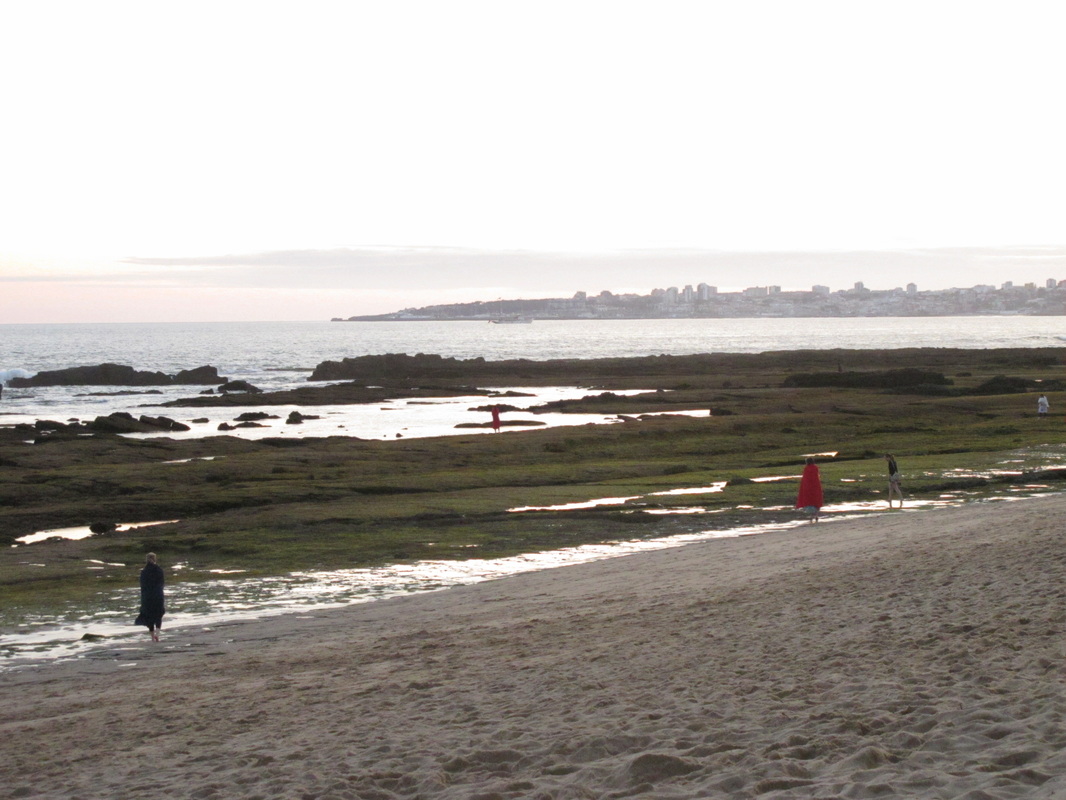
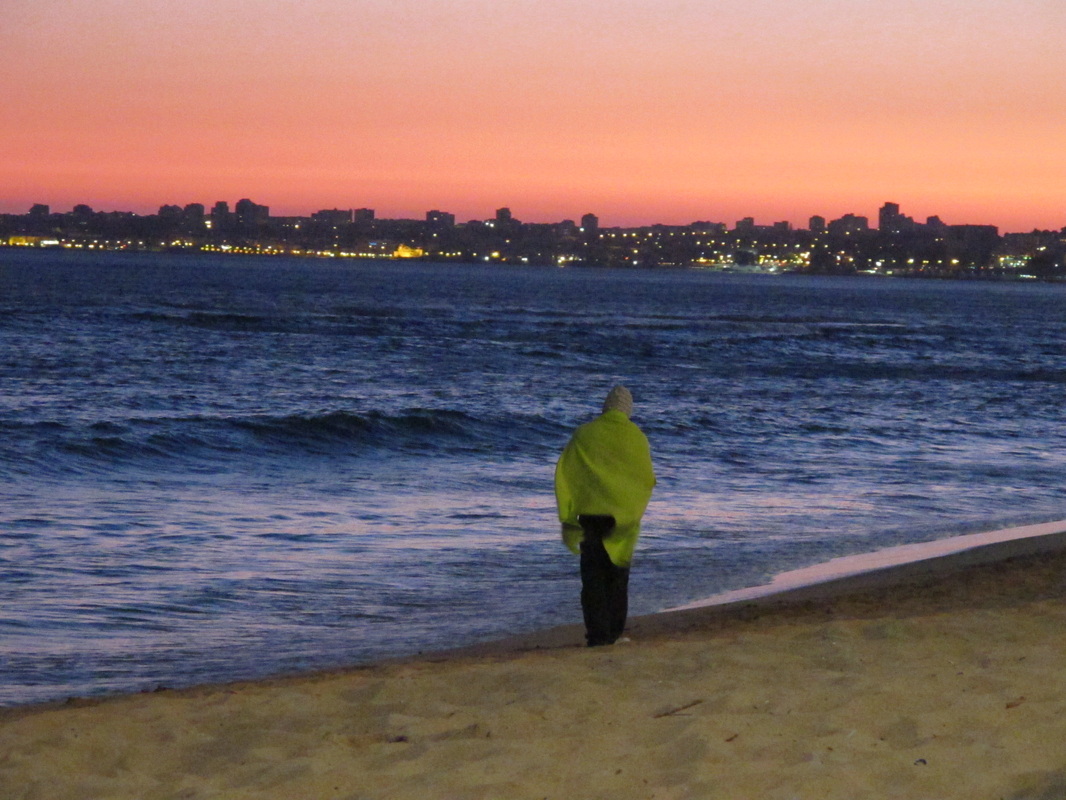
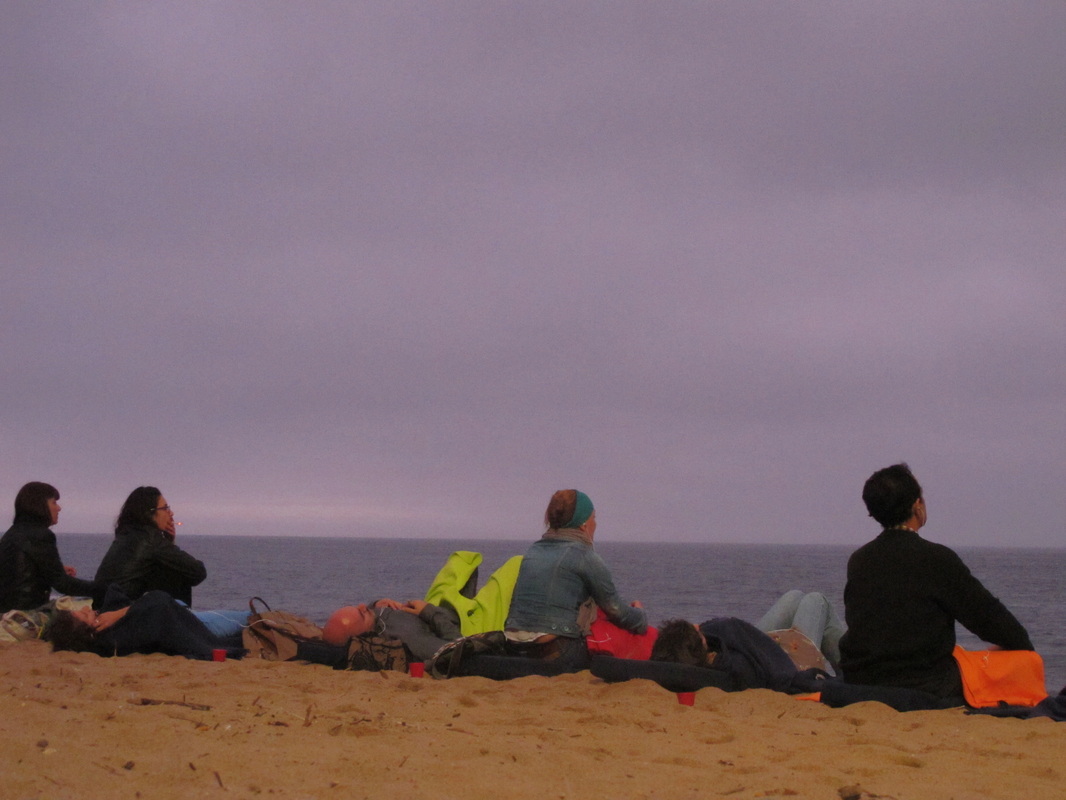
SOUND RECORDING
BETTER WITH HEADPHONES
;)